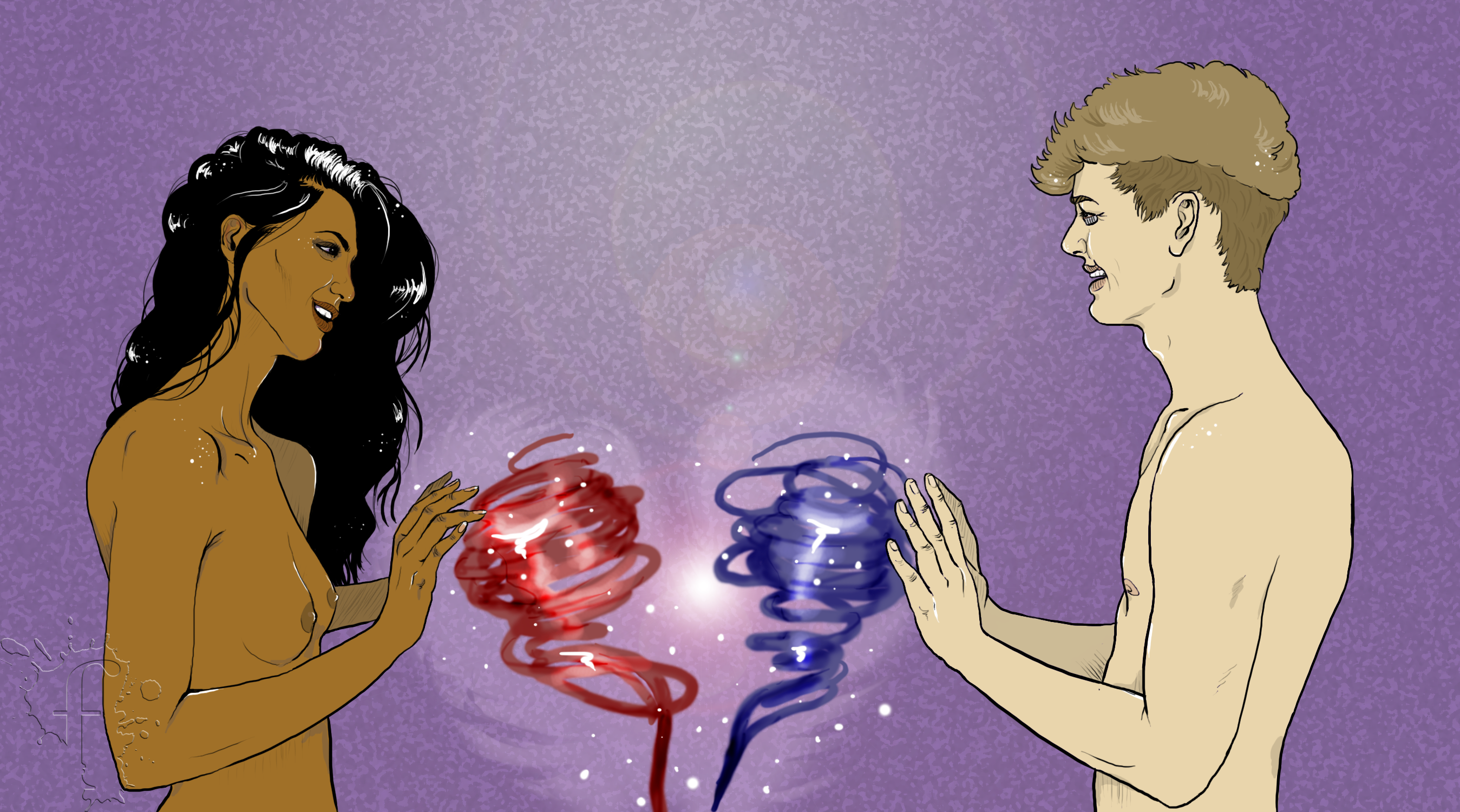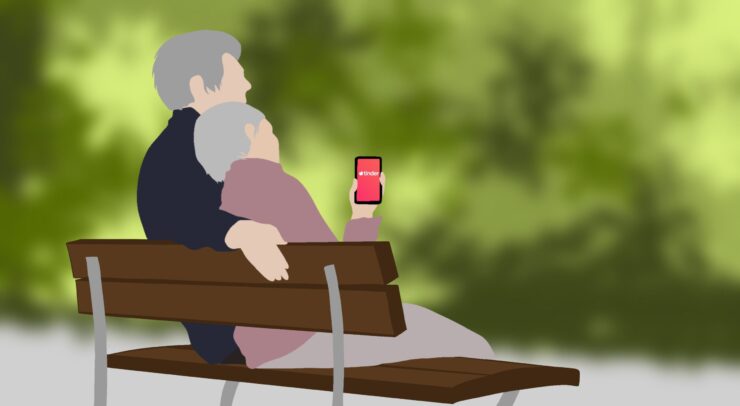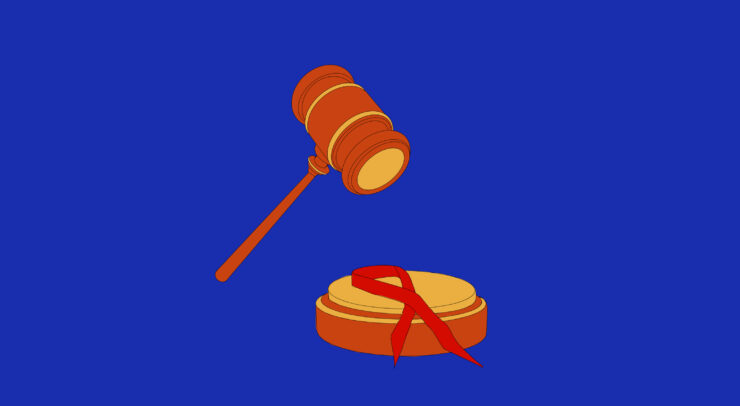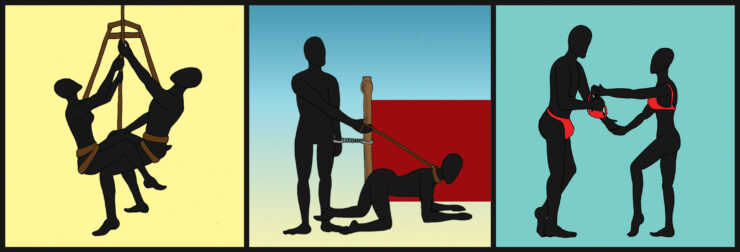How students can recognize healthy relationships
Martina Gannon | Fulcrum Contributor
Illustration by Ojo Agi
MOST STUDENTS HAVE seen a friend trapped in a harmful relationship, or maybe you’ve been stuck in one yourself. Sometimes it can be difficult to pinpoint exactly what’s wrong, or how to deal with it constructively. This can be stressful—the reality is that the fallout from an unhealthy relationship can range from minor to seriously damaging.
Multiple studies have shown there are a number of benefits that come from being in a long-term relationship, including better health and a longer life. A 2007 Finnish study conducted at the University of Jyväskylä called “What Makes University Students Happy?” found that meaningful relationships formed in university are one of the top three contributors to students’ happiness. Meanwhile, a Canadian study carried out by the National Longitudinal Survey of Children and Youth demonstrated a link between youth depression and unhealthy relationships with parents and peers.
The Fulcrum sought out wisdom from students and experts around campus to find out exactly what constitutes a healthy relationship and how students can work toward building and maintaining healthy romantic relationships.
SEE ALSO: Testing my love [Blog]
The good
Greg Killough is the student health coordinator at Health Promotions, part of the University of Ottawa’s health services. He identified five qualities of a healthy relationship, summed up by the acronym SHARE: safety, honesty, acceptance, respect, and enjoyment.
“Basically, in a healthy relationship, you need to feel safe. You’re not worried about your partner harming or abusing you physically, emotionally, or otherwise. And you’re not feeling inclined to do the same to your partner,” he said. “A healthy relationship is not … one where you keep secrets from each other. It’s very open and honest with communication. You’re accepting of who your partner is, what their values are, what their beliefs are. You respect each other and think of each other as equals.”
Naomi Martey is a third-year U of O student studying international development and women’s studies who volunteers at the Women’s Resource Centre. She recognized communication and dependability as significant relationship makers or breakers.
“[A healthy relationship means] having someone who you can rely on to be on time and listen to you—an unreliable partner can’t build a strong relationship.”
Rosemary Ernhofer, a Student Academic Success Service (SASS) counsellor, identified four characteristics crucial to maintaining a strong relationship.
“Honesty, openness, respect, empathy,” she said.
Although these seem to be obvious qualities anyone would want from a partner, it isn’t always easy to identify whether or not they are lacking when you’re blinded by emotion. Sara Quinton* is a U of O student who was in an unhealthy relationship. She didn’t recognize the negative aspects of her relationship until her after partner broke up with her.
“He had flaws,” explained Quinton, “but I minimized them because I loved him. [For instance,] he didn’t control what I did, but always had an input.”
Donald Martin, a registered psychological associate and manager of SASS Counselling and Coaching, listed balance as the key to a healthy student relationship.
In addition to the balance of work, school, and friends, Martin maintains another equilibrium is needed for sharing mutual respect: the positive feedback you give your partner should always outweigh the negative. Ideally, the ratio should be 3:1, praise versus criticism.
Killough added that relationships should also be enjoyable.
“Ultimately, in a relationship you should be having fun,” he explained. “If all of those [SHARE elements plus fun] are there, based on what I’ve seen, that’s kind of what a healthy relationship looks like.”
The bad, and the ugly
We’ve all heard the saying, “If it ain’t broke, don’t fix it.” But certain warning signs can indicate that something does need to be fixed, or that the relationship needs to be ended. According to the experts, there are specific behaviours that should cause an individual to take a step back and reevaluate if this is the right relationship for them.
Martey believes co-dependency is dangerous and detrimental to relationships.
“When a person is so reliant on someone, they can lose their own personality,” she said. “When one person is your entire world, you can’t change, you can’t grow.”
According to Ernhofer, a lack of engagement from one partner is a sign that the relationship won’t progress.
“[There’s a problem] in a relationship where partners are not equally committed—when [one partner is] not being accessible enough to solicit trust, not being responsive to needs of the friend/lover, and not being engaged enough in the relationship,” she said.
Killough describes an unhealthy relationship as one where there’s no respect.
“Unhealthy relationships tend to revolve around control—sometimes even fear—and a lack of respect for each other,” he explained. “So when you’re in a relationship and someone isn’t respecting who you are, what your values are, what your goals are, then that’s not support[ive] of what you want to accomplish.”
Quinton feels one of the reasons she stayed with her ex for as long as she did was because his negative qualities weren’t extreme.
“He wasn’t all bad, and did great things for me. That being said, the bad did outweigh the good. When he made the decision to leave, I came to my senses,” she said. “He didn’t constantly put me down or treat me badly, but when he did it was bad.”
Communication, communication, communication
When asked for advice on how students can deal with relationship issues or conflicts, the experts agreed: communication is key.
“The biggest thing, I think, is communication and being honest with the person that you’re with,” said Killough. “One of the natural instincts that people have is that when someone is having an argument with you, in your head you’re formulating a response. What’s helpful is to listen to what they’re saying and try and see that other person’s point of view and [accept] that that is the way they feel.”
Martin had a similar take.
“[It’s] mostly a matter of talking to each other about wants and needs. Don’t assume. Ask,” he advised.
“Communicate instead of assuming. Assumptions often cause a partner to shut down and withdraw or blame, neither of which helps a relationship,” added Ernhofer. It seems the saying is true: when you assume, you make an “ass” out of “u” and “me.”
Too far gone
At what point in a bad relationship is it time to call it quits? Quinton only saw in hindsight that her relationship was unhealthy—she recognized some characteristics of her partner she had missed out on, and some of her own actions that had contributed to her staying in the relationship.
“I would say the most unhealthy aspect was how dependent I was [on] him. I cut people out because I felt he was all the company I need[ed],” said Quinton. “My advice would be to not make your partner the centre of your world.”
Just questioning whether or not your relationship is good for you is probably an indicator that it isn’t.
“It’s kind of an individual thing … although I would say that if you think you may be in an unhealthy relationship, then you probably are,” explained Killough. “It’s really trusting yourself. If you don’t feel all those things that we said a healthy relationship has, if you don’t feel safe or accepted or respected, then you’re probably not in a healthy relationship and you need to explore that.”
So how can one go about doing so?
Reevaluating a relationship can be difficult, but there are resources available on campus that can help.
“There are a lot of different ways you can [determine the health of your relationship, but] that is very challenging, especially if it’s a relationship that you’ve been in for a while,” said Killough. “The biggest thing is looking at what resources are available to you. [Health Promotions is] here and we can refer people. SASS has counselling and coaching for people in difficult and potentially abusive relationships. There’s also the Women’s Resource Centre, which offers a lot of support and active listening.
There’s no shame in asking for help if you’re feeling overwhelmed, if you need to know what your next step is, or if you need support in a situation.”
If you’re stressing over your relationship, be honest with yourself and seek the help necessary to get your personal life back on track—with or without your partner. Most importantly, enjoy your relationship. If the enjoyment is gone, maybe it’s time that you were too…
If you think you may be in an unhealthy relationship or you just want someone to talk to, the U of O has a number of available services. Check out University of Ottawa Health Services, SASS Counselling and Coaching, Pride Centre, Women’s Resource Centre, or the Peer Help Centre.
*Name has been changed.





